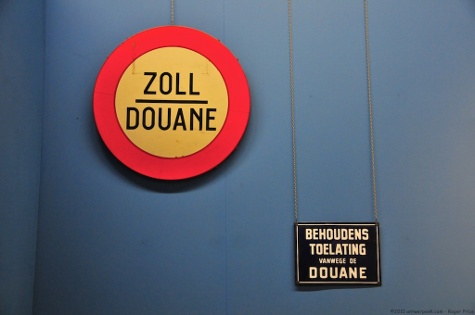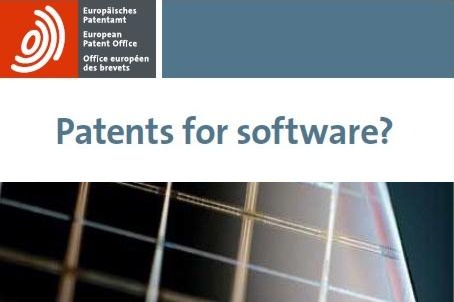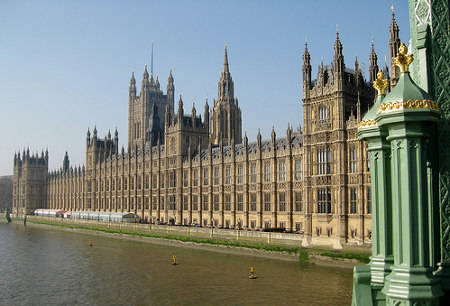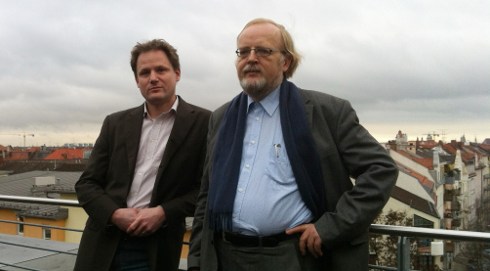On May 30, 2011, the EU Council had published Document 10880/11 conveying a Proposal for a regulation of the European Parliament and of the Council concerning customs enforcement of intellectual property rights issued by the EU Commission under reference COM(2011) 285 final on May 26, 2011. The gist of this proposal was summarised within the Document as follows:
Continue reading »
During the past 15 years the Boards of Appeal of the EPO have developed a consistent case law as to the pragmatic problem/solution approach for assessing patentability pursuent Art 52 -57 EPC. In our earlier overview on
EPO case law regarding patentability of software inventions,
to which this posting is meant as a more practical continuation, we briefly characterised the EPO’s main examination approach:
[M]odern case law [of the EPO Boards of Appeal on software inventions], especially the suggestion in T 1173/97 that the “technical contribution” is an inventive step consideration and the observation in some early cases (e.g. T 38/86 and T 65/86) that the “inventive contribution” must lie in a “field of technology”, almost naturally lead to the problem-solution approach as developed in T 641/00 (COMVIK) and T 258/03 (Hitachi) and theoretically justified in T 154/04 (Duns).
This approach nowadays is the crucial test to differentiate between a technical contribution implementing a non-technical concept (e.g. a business method) and an inventive contribution in a technical field (e.g. an embedded control software). Its general idea is that only the technical features of a claim may be taken into account for assessing inventive step, while the non-technical features form a basis for formulating the underlying problem, with the effect that the non-technical features may render the technical solution obvious.
This approach is widely accepted among practitioners as enhancing legal security for applicants since it represents a comprehensible benchmark against which EPO decisions are subject to verifiction.
José Manuel Durão Barroso, President of the European Commission, has delivered a Statement on the occasion of a meeting with Helle Thorning-Schmidt, Prime Minister of Denmark, on January 12, 2012:
The same goes for a common unitary patent in Europe! Frankly we are almost there; there are now some divisions between France, Germany and Britain on things that are not so difficult. We can finalise the Community patent that we have been discussing for 30 years so it is about time to come to a solution and I know that Denmark will put its influence to find a solution.
Apparently this is something like a morale-boosting slogan, a rallying call, pep talk. We shall wait and see what really will happen during the coming months of the Danish EU Presidency.
Meanwhile the European Scrutiny Committee of the UK House of Commons uttered concerns that some of the draft plans for a single EU-wide patent system could disadvantage UK small businesses, Out-Law.com reports.
In detail, the conclusions of the Committee were not very favourable:
Continue reading »
This is just a brief notice concerning the envisaged Regulation of the European Parliament and of the Council implementing enhanced cooperation in the area of the creation of unitary patent protection. As we all know, the past Polish EU Presidency was not successful in delivering a final compromise on one of the other main components of the EU patent package, the Agreement on the creation of a Unified Patent Court. At least the question of where to put the seat of the Central Division could not be answered, and other issues might be unresolved as well. The incoming Danish EU Presidency extending from January to July 2012 obviously is determined to carry on with that task.
Just now the linguistic secretariat of the EU Council has sent out Document CM 1068/12 conveying an invitation addressing the Jurists/Linguists Group of the Council, summoning Members thereof to meet on January 26, 2012, in order to finalize the text of the Regulation of the European Parliament and of the Council implementing enhanced cooperation in the area of the creation of unitary patent protection (PE-CONS 72/11 – 2011/0093 (COD)) from a legal and linguistic point of view.
In my view this is an indication that dice is cast with regard to the political issues surrounding the Regulation. We shall wait and see if the Danish Presidency also can surmount the obstacles still barring the partners of the enhanced cooperation from finding a political solution with regard to the UPC Agreement.
EU Patent Package: JURI has Spoken, But What did it Say? (UPDATE)
Yesterday the members of the EU Parliament’s Legal Affairs Committee (JURI) voted in three separate sessions on the EU patent package (see nos. 18 to 21 of agenda):
- Enhanced cooperation in the area of the creation of unitary patent protection, JURI/7/05848, Rapporteur: Bernhard Radkay (S&D).
- Enhanced cooperation in the area of the creation of unitary patent protection with regard to the applicable translation arrangements, JURI/7/05847, Rapporteur: Raffaele Baldassarre (PPE).
- Jurisdictional system for patent disputes, JURI/7/06168, Rapporteur: Klaus-Heiner Lehne (PPE).
Fitting into the parliamentary tradition of issuing celebrating press releases when it comes to the future EU patent system, like
- A step closer to an EU patent (22 Nov 2011) or
- Done deal on the EU patent? (01 Dec 2011),
yesterday’s post-vote press statement was titled
- EU patent gets Legal Affairs Committee green light (20 Dec 2011),
disclosing, besides the well-known mantras as to the beneficial effects of the new European patent system, the liberating message that
Legal Affairs Committee MEPs backed a political deal struck last 1 December between Parliament and Council negotiators on the so-called “EU patent package” [...]. If Parliament as a whole and the Council confirm the deal, a new EU patent will be created.
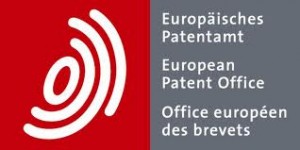 As something like a pre-Christmas present, the European Patent Office startet off into the bright future of online communication and interaction last week.
As something like a pre-Christmas present, the European Patent Office startet off into the bright future of online communication and interaction last week.
On 13 December 2011 a President’s Decision and a related Notice introduced the notification of communication in selected EPO proceedings via online mailboxes (entered into force on 15 December 2011), while a Notice dated 15 December 2011 informed on the newly launched web-based consultation platform for proposed changes to European patent law and practice.
Recently I spotted an entry for Document 15856/11 in the Public Register of the EU Council. The paper is titled OPINION OF THE LEGAL SERVICE – Draft agreement on the European Union Patent Jurisdiction (doc.13751/11) – compatibility of the draft agreement with the Opinion 1/09 and marked confidential (“LIMITE“). After having filed a request based on Regulation (EC) No 1049/2001 of the European Parliament and of the Council of 30 May 2001 regarding public access to European Parliament, Council and Commission documents I was served with a heavily redacted version of the requested Document.
In the effect, all significant portions of the Document were deleted. The only real disclosure is to be drawn the introductory narrative:
At the Competitiveness Council on 29 September 2011 the Legal Service was asked about the compatibility with Opinion 1/091 of the Court of Justice of the European Union (the “Court of Justice”) of a draft agreement on the European Union Patent Jurisdiction (hereinafter “the current draft agreement”), elaborated by the Presidency of the Council in September 20112. This contribution further develops and constitutes a written version, requested by the Council, of the statement made orally at that meeting.
Continue reading »
When Poland took over the EU Council Presidency in summer, the incoming Polish Presidency emphasised in a Note its determination to wisely utilise the “momentum for finalising the legislative processes” and “to continue the work in parallel on both [creation of unitary patent protection and creation of a unified patent litigation system], with a view to reaching an overall political agreement within the Council at the end of this year”.
In November, the Polish Presidency announced in Document 17539/11 its intention to organise an initialling ceremony whereby the text of the Unitary Patent Court Agreement could be finalised in Warsaw on 22 December 2011 (see also here). As the Competitiveness Council meeting on 5 December 2011 ended with the positive news that only the seat of the Central Division of the Unitary Patent Court remains to be decided, hopes increased that the new European Unitary Patent may become reality by the end of this months, when Poland will pass the Presidency baton over to Denmark.
As reported earlier, there is a strong desire of (parts of) industry [1, 2] and patent professionals [1, 2, 3], politically supported by JURI member Wikström and UK IP Minister Baroness Wilcox, to remove Articles 6 to 8 dealing with substantive patent law on patent infringement from the proposed Regulation. The fears of those groups are that otherwise substantive patent law would become part of EU legal order causing costs, delays, legal uncertainty. A related resolution of the European Patent Lawyers Association EPLAW expressed such concerns recently in a rather pointed way:
If one wants a really unattractive, inefficient, unpredictable and probably extremely expensive patent court system, then we will get it; one must only give the ECJ a chance to receive as many referrals in patent law as possible.
If one wants to see substantive patent law in Europe to be decided by judges without any solid knowledge and experience in this field, then one must involve the ECJ whenever possible.
And if somebody intended to lay a solid ground for failure of this – at some time very promising – project, then he will probably succeed.
Now there is evidencs (see e.g. this tweet) suggesting that Ms Wikstrom has lost the battle over Articles 6 to 8, so that the provisions dealing with substantive patent law on patent infringement will remain part of the Unitary Patent.
The k/s/n/h::law blog
Some of the patent attorneys of the KSNH law firm have joined their efforts to research what is going on in the various branches of IP law and practice in order to keep themselves, their clients as well as interested circles of the public up to date. This blog is intended to present results of such efforts to a wider public.
Blog Archives
- November 2013 (2)
- October 2013 (1)
- September 2013 (1)
- August 2013 (2)
- July 2013 (3)
- June 2013 (5)
- March 2013 (5)
- February 2013 (4)
- January 2013 (5)
- December 2012 (5)
- November 2012 (5)
- July 2012 (5)
- June 2012 (8)
- May 2012 (5)
- April 2012 (3)
- March 2012 (4)
- February 2012 (5)
- January 2012 (6)
- December 2011 (12)
- November 2011 (9)
- October 2011 (9)
- September 2011 (4)
- August 2011 (7)
- July 2011 (4)
- June 2011 (1)
Blog Categories
- business methods (6)
- EPC (7)
- EPO (12)
- EU law (92)
- ACTA (8)
- CJEU (4)
- Comitology (1)
- competition law (2)
- Enforcement (6)
- EU Unified Patent Court (62)
- FTA India (1)
- TFEU (2)
- Trade Marks (5)
- European Patent Law (37)
- German Patent ACt (PatG) (1)
- German patent law (5)
- Germany (6)
- Pirate Party (3)
- International Patent Law (4)
- PCT (2)
- IP politics (10)
- licenses (2)
- Litigation (5)
- Patentability (7)
- Patents (12)
- Piratenpartei (2)
- Software inventions (10)
- Uncategorized (9)
- Unitary Patent (24)
- US Patent Law (4)
Comments
- kelle on Germany: Copyright Protection More Easily Available For Works Of “Applied Arts”
- Time Limits & Deadlines in Draft UPCA RoP: Counting The Days - KSNH Law - Intangible.Me on Wiki Edition of Agreement on Unified Patent Court Agreement (UPCA)
- Time Limits & Deadlines in Draft UPCA RoP: Counting The Days | ksnh::law on Wiki Edition of Agreement on Unified Patent Court Agreement (UPCA)
- Wiki Edition of Agreement on Unified Patent Cou... on Wiki Edition of Agreement on Unified Patent Court Agreement (UPCA)
- European Commission Takes Next Step Towards Legalising Software Patents in Europe | Techrights on EU Commission publishes Proposal of amendend Brussels I Regulation for ensuring Enforcement of UPC Judgements
Blogroll
- 12:01 Tuesday
- America-Israel Patent Law
- Anticipate This!
- AwakenIP
- BlawgIT
- BLOG@IPJUR.COM
- BP/G Radio Intellectual Property Podcast
- Broken Symmetry
- Class 46
- Director's Forum: David Kappos' Public Blog
- Gray on Claims
- I/P UPDATES
- IAM Magazine Blog
- Intellectual Property Intelligence Blog
- IP Asset Maximizer Blog
- IP CloseUp
- IP Dragon
- IP Watch
- IP Watchdog
- IPBIZ
- ipeg
- IPKat
- ITC 337 Law Blog
- Just a Patent Examiner
- K's Law
- MISSION INTANGIBLE
- Patent Baristas
- Patent Circle
- Patent Docs
- Patently Rubbish
- PatentlyO
- Patents Post-Grant
- Reexamination Alert
- SPICY IP
- Tangible IP
- The 271 Patent Blog
- The Intangible Economy
- THE INVENT BLOG®
- Think IP Strategy
- Tufty the Cat
- Visae Patentes
The KSNH blogging landscape


This blog and the German-language sister blog k/s/n/h::jur link to the two popular and privately run blogs IPJur und VisaePatentes and continue their work and mission with a widened scope and under the aegis of our IP law firm.
ksnhlaw on Twitter
- No public Twitter messages.
 KSNH::JUR Feed (german)
KSNH::JUR Feed (german)- Ist Verschlüsselung passé? September 6, 2013Auf verschiedenen Feldern beruflicher Praxis ist dafür zu sorgen, dass Kommunikation vertraulich bleibt. Die trifft beispielsweise für Ärzte zu, aber auch für Anwälte, darunter auch Patentanwälte. Einer der zahlreichen Aspekte, die in diesem Zusammenhang eine Rolle spielen, ist die Technik, um die Vertraulichkeit beruflicher Kommunikation sicherzustellen. Wa […]
- EU-Einheitspatent: Demonstrativer Optimismus und Zahlenmystik allerorten – Naivität oder politische Beeinflussung? June 26, 2013Nach mehreren vergeblichen Anläufen zur Schaffung eines EU-weiten Patentsystems wurde 1973 als Kompromiss das Europäische Patentübereinkommen unterzeichnet, welches unabhängig von der seinerzeit noch EWG genannten Europäischen Union System zur zentralisierten Patenterteilung mit nachgeordnetem Einspruchsverfahren durch das Europäische Patentamt schuf. Wie wi […]
- Moderne Zeiten oder: DPMA und Patentgericht streiten über die elektronische Akte April 25, 2013Bekanntlich hat das Deutsche Patent- und Markenamt (DPMA) im Jahre 2013 mit der rein technischen Fertigstellung der Einrichtungen zur elektronischen Akteneinsicht einen wichtigen Meilenstein seines Überganges von der Papierakte zur “elektronischen Akte” erreicht. Im DPMA werden aber bereits seit dem 01. Juni 2011 Patente, Gebrauchsmuster, Topografien und erg […]
- Gutachten zu Forschung, Innovation und technologischer Leistungsfähigkeit Deutschlands 2013 March 11, 2013Unter dem Datum vom 28. Februar 2013 ist die Bundestags-Drucksache 17/12611 veröffentlicht worden Sie trägt den Titel Unterrichtung durch die Bundesregierung - Gutachten zu Forschung, Innovation und technologischer Leistungsfähigkeit Deutschlands 2013. Die Bundesregierung legt dem Deutschen Bundestag seit dem Jahr 2008 […]
- 3D-Printing: Zum Filesharing von 3D-Modelldaten February 25, 2013In meiner kleinen zuvor angekündigten Reihe über rechtliche Aspekte des 3D Printing komme ich heute auf die Frage zu sprechen, ob die Hersteller von Gerätschaften es hinnehmen müssen, wenn Ersatztreile davon – vom Brillengestell über Smartphone-Gehäuseteile bis hin zu Rastenmähermotor-Abdeckungen – gescannt und die daraus […]
- Ist Verschlüsselung passé? September 6, 2013

